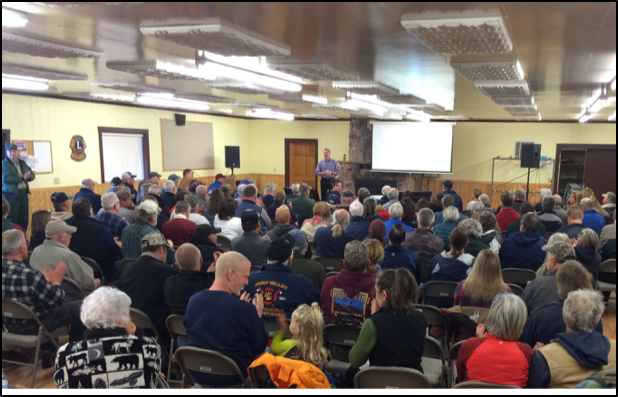 Public perspectives are a critical consideration throughout the fire management process, including around management decisions before, during, and after fire events. Working with local property owners and communities around planning and implementing fuel treatments and about actions they can take to mitigate their fire risk, both prior to and during fire events, are critical to improving future fire management outcomes. Proactive work with communities also is critical to effective co-management and shared stewardship efforts as it enables agency managers and stakeholders to build trust and develop clear communication processes to discuss critical land management and community needs and preferences. Resources curated here provide background to better understand the social issues that managers encounter in fire management and provide potential ways to address those issues.
Public perspectives are a critical consideration throughout the fire management process, including around management decisions before, during, and after fire events. Working with local property owners and communities around planning and implementing fuel treatments and about actions they can take to mitigate their fire risk, both prior to and during fire events, are critical to improving future fire management outcomes. Proactive work with communities also is critical to effective co-management and shared stewardship efforts as it enables agency managers and stakeholders to build trust and develop clear communication processes to discuss critical land management and community needs and preferences. Resources curated here provide background to better understand the social issues that managers encounter in fire management and provide potential ways to address those issues.
This hot topic was developed in partnership with Rocky Mountain Research Station.
Recorded Webinars
Research Briefs
- Fuels planning: science synthesis and integration; social issues fact sheet 1: developing personal responsibility for fuels reduction: building a successful program to engage property owners
- Fuels planning: science synthesis and integration; social issues fact sheet 4: three critical topics to cover when talking about hazards
- Fuels planning: science synthesis and integration; social issues fact sheet 2: developing personal responsibility for fuels reduction: types of information to encourage proactive behavior
- Fuels planning: science synthesis and integration; social issues fact sheet 3: developing personal responsibility for fuels reduction: more ways to catch and hold people's attention
Syntheses
- Community wildfire preparedness: a global state-of-the-knowledge summary of social science research
- Social science at the wildland-urban interface: a compendium of research results to create fire-adapted communities
- Research perspectives on the public and fire management: a synthesis of current social science on eight essential questions
Conference Proceedings
- Human relationships to fire prone ecosystems: mapping values at risk on contested landscapes
- Mapping tradeoffs in values at risk at the interface between wilderness and non-wilderness lands
- Trends in public attitudes towards the use of wildland fire
- Organizational characteristics that contribute to success in engaging the public to accomplish fuels management at the wilderness/non-wilderness interface
- Agencies within communities, communities within ecosystems
Technical Reports/White Papers
- Policy scenarios for fire-adapted communities: understanding stakeholder risk-perceptions with Fuzzy Cognitive Maps
- Community experiences with wildfire: actions, effectiveness, impacts, and trends
- Trust: a planning guide for wildfire agencies and practitioners - An international collaboration drawing on research and management experience in Australia, Canada, and the United States
- Understanding homeowner preparation and intended actions when threatened by a wildfire
- Wildfire smoke: a guide for public health officials
- Prescribed fire: what influences public approval?
- Visitor attitudes toward wilderness fire management policy - 1971-84
Publications
2020
2019
2018
2017
2015
2014
2013
2012
2011
2010
2007
Podcasts
Videos
Presentations
Past Events
- Mar 22, 2021